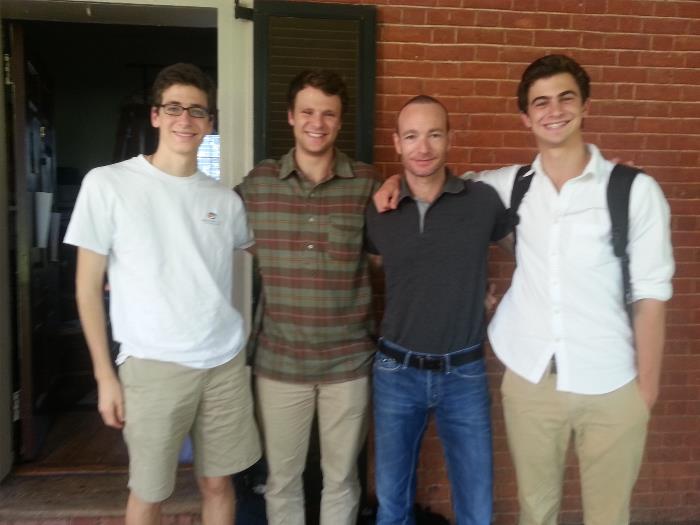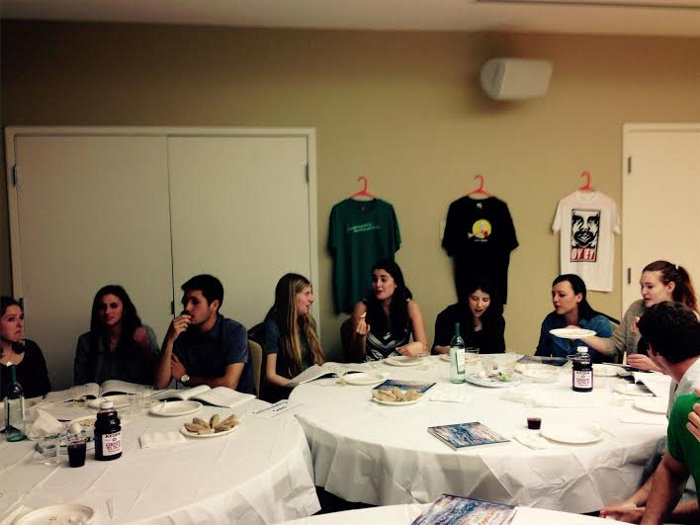|
While talking with students, Pinkas covered plenty of the areas he has experience in-- including motivating the populous to accept environmentally motivated initiatives, working within a governmental structure to bring big picture issues to the forefront, and utilizing divesture to achieve environmental goals. The topics were applicable not only to Israel, but also to America and the entire world. The opportunity to hear from the man voted one of Israel's 100 Most Influential People on his work and passion was truly remarkable.
-- Otto Warmbier Class of 2017
At Passover, Otto Warmbier and I aimed to make the environment a topic of Jewish conversation. What are the ten plagues of climate change? How can washing our hands remind us of the importance of water conservation? Throughout the Seder, we asked participants to reflect on how the story of the Exodus and the Seder traditions relate to environmental challenges.
In my opinion, Judaism doesn't care what you say if you do not act accordingly. We could not talk about sustainability at a Passover Seder without trying to make the Seder more environmentally-friendly. Since the food was already set, we turned to the materials present at the dinner. For the Seder, we ordered compostable cups, cutlery, and plates, and coordinated with a local compost company to provide bins for disposal.When we throw things in the trash, they just sit in landfills for years, decomposing slowly and creating pollution problems for neighboring towns. We compost and recycle to divert waste away from landfills. This way, it goes on to be useful again. Education is the most important piece of a "zero waste" (only compostable and recyclable materials) practice. If no one knows what to put where or they are unaware of the impacts of their actions, then the idea is not sustainable. Clear signage and an announcement at the beginning of the Seder helped to engage people and to empower them to dispose of their waste properly. The dinner was a success, but what we are most excited for is making "zero waste" and sustainability a bigger part of what we do at Hillel. Next year, we hope to have compost at Shabbat every week and will work to expand recycling at Hillel. With environmental problems, we can rarely say, "dayeinu". There is always more that we can do to promote sustainability and to decrease our impact on the environment. - Lia Cattaneo, Peer Network Engagement Intern Class of 2016 |
The Brody Jewish Center, Hillel at the University of Virginia, is the focal point in a renaissance of Jewish life for the 1,000 Jewish students on Grounds. Archives
September 2021
Categories
All
|


 RSS Feed
RSS Feed